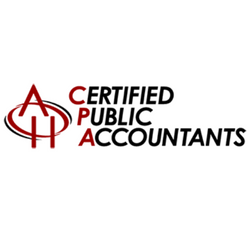
Accounting Mistakes That Startups Make and How to Avoid Them
Many startups have limited budgets and operate on thin profit margins. There isn’t much room for error, and handling finances strategically is critical to success. Yet many entrepreneurs fail to manage their accounting practices well. In fact, poor financial management is the second most common reason a startup fails. This article covers the top three accounting mistakes that startups make, and some solutions to keep your business solvent and profitable.
Mistake #1: Handling All Accounting In-House
When you’re on a limited budget, it can be tempting to crunch the numbers yourself. However, outsourcing some of your accounting processes can help save time and money in the long run.
Reduce costs and risk
Accounting is a specific skill set. Outsourcing to trained professionals can reduce the likelihood of an accounting error. The accounting staff is also knowledgeable about tax code and employment laws, ensuring your business is compliant. Rather than sitting in file drawers, your financial data is processed promptly, giving you an accurate picture of your finances in real-time.
Leasing overseas staff for your accounting needs or payroll can cut costs dramatically. A major outsourcing hub like the Philippines can reduce your labor costs by up to 70%.
More time to focus on your core business
Billing, payroll, invoices, deposits, and account reconciliation — these are labor-intensive tasks. Essential as they are, they don’t drive profit. As your business grows, you may decide your time is better spent elsewhere, such as increasing sales, improving your product, and honing business strategy.
Access to the latest technology
Accounting software can be a significant investment, particularly for a startup venture. Many outsourcing firms already have the latest software and technology at their disposal. You can avoid the cost of purchasing a software system, and avoid lost time training your staff to use it.
Mistake #2: Relying on Paper Records
Running a small business entails a lot of paperwork. Keeping track of all the bills, receipts, and invoices can be a challenge. Transitioning to a paperless system can make your records more accurate, timely, and organized. Two solutions are available to modernize your accounting: smartphone apps and computer software.
Accounting apps
These apps allow you to capture financial data in real-time using your smartphone. There is no need to save every paper receipt or enter the details of each transaction manually. Important financial information, such as date, vendor, and amount, can be scanned with your phone’s camera, and then automatically uploaded to the app. Some programs even track which expenses are tax-deductible.
Beyond tracking expenditures, some apps create invoices and expense reports, track employee time, and accept payments on-the-go. For businesses that need bookkeeping, apps offer an affordable solution. They typically have a simple interface as well, requiring little time to master.
Accounting software
As your business grows, so does its financial complexity. Software is useful for the entrepreneur who needs more than bookkeeping features. In addition to basic accounting functions, software can help you manage cash-flow, assign project budgets, and generate graphs and reports.
If you’re already using accounting apps, software such as Quickbooks and Insightly can integrate information from hundreds of different applications. Insightly even allows you to build your own customized apps.
Mistake #3: Not Hiring Certified Public Accountants (CPAs)
Tax accounting
Many startups turn to a CPA only during tax season. However, a qualified tax accountant can save you money year-round. In fact, they can save you money before you even launch your business. Whether a sole proprietorship, partnership or corporation, there are tax ramifications for each business entity. Accounting firms can help you choose the right business structure, a critical step to reducing your bill come tax season. Tax planning throughout the year can help you avoid unexpected penalties when filing taxes, and make sure you capitalize on any deductions.
Management accounting
It takes at least seven years of education and experience to become a CPA. This lends your business a level of financial expertise that cannot be found in software or a skilled bookkeeper.
While many entrepreneurs are focused on the here and now of running a business, a CPA takes the long view. Accounting firms can make a comprehensive evaluation of your finances and create a long-term strategy to keep your business prosperous. They can also identify trend lines and other key indicators to make forecasts for the year (and beyond). They can create budgets and control overhead expenses to ensure cash flow remains healthy.
A CPA can also help you get access to funding. Many of them already have established relationships with loan officers and investment groups. They can also provide the financial reports and forecasts needed for loan and grant applications.
Improve the Financial Health of Your Startup
Accounting often gets put on the backburner, while entrepreneurs focus on profit-generating tasks. However, healthy accounting practices have enormous influence over which businesses survive and thrive. Outsourcing allows business owners to focus on core tasks such as sales, relationships, and strategy. Paperless systems reduce inefficiency and prevent errors. Meanwhile, using a CPA can give your startup the outside perspective and expertise needed to grow and plan for the future. Each of these solutions can help your startup stay afloat and grow more profitable.


